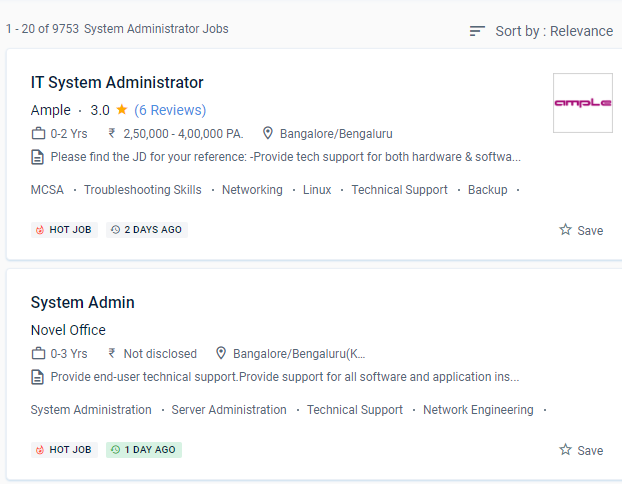System Administration Training by Experts
Our Training Process

System Administration - Syllabus, Fees & Duration
MODULE 1
- System administration introduction, policies, overview, UNIX history and basis
MODULE 2
- File systems and disks
MODULE 3
- Software installation concepts
MODULE 4
- Multi users basics, politics, policies and ethics
MODULE 5
- Automating administrative tasks
MODULE 6
- Networking
MODULE 7
- Backup and disaster recovery
MODULE 8
- DNS
MODULE 9
- SMTP, HTTP
MODULE 10
- Configuration management
MODULE 11
- Distributed computing
MODULE 12
- SNMP, monitoring
MODULE 13
- System security
This syllabus is not final and can be customized as per needs/updates





 When signals halt, system administrators alter cables to repair the transmission media. Circuit boards and CPUs are assembled by computer hardware engineers to produce functional mobile or desktop devices.
All of the important components of the corporate computing infrastructure are managed by system administrators.
. These experts may go on to become technology and IT managers in the future.
The System Administration course in Abu Dhabi will take you from working on a single machine to managing a complete fleet. Students who pursue a diploma in this field have a fantastic opportunity to expand their expertise. You'll also learn how to manage and configure servers, as well as how to manage PCs, user information, and user productivity using industry tools. Finally, you'll discover how to restore your company's IT infrastructure following a disaster. Network architects have frequently experienced administrators who build data transmission systems from the ground up.
When signals halt, system administrators alter cables to repair the transmission media. Circuit boards and CPUs are assembled by computer hardware engineers to produce functional mobile or desktop devices.
All of the important components of the corporate computing infrastructure are managed by system administrators.
. These experts may go on to become technology and IT managers in the future.
The System Administration course in Abu Dhabi will take you from working on a single machine to managing a complete fleet. Students who pursue a diploma in this field have a fantastic opportunity to expand their expertise. You'll also learn how to manage and configure servers, as well as how to manage PCs, user information, and user productivity using industry tools. Finally, you'll discover how to restore your company's IT infrastructure following a disaster. Network architects have frequently experienced administrators who build data transmission systems from the ground up.



















































































